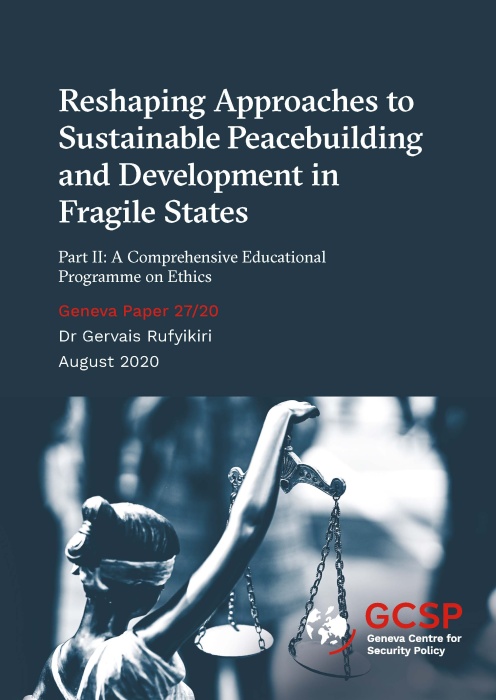Reshaping Approaches to Sustainable Peacebuilding and Development in Fragile States - Part II
Part II: A Comprehensive Educational Programme on Ethics
Fragile states face the impact of interrelated pressures stemming from dysfunctional public institutions, political instability and crises, the disintegration of the social fabric, economic collapse, and ineffective leadership. Part I of this study argued that leaders’ unethical behaviour is the root cause of state fragility and probably the most difficult challenge for any state to overcome. Part II identifies the ethical leadership dimension as a key factor in any attempt to lay the foundations for a lasting remedy to the various manifestations of state fragility. Then, a comprehensive ethics education programme is suggested as an efficient and effective way of cultivating ethical leadership in fragile states.


